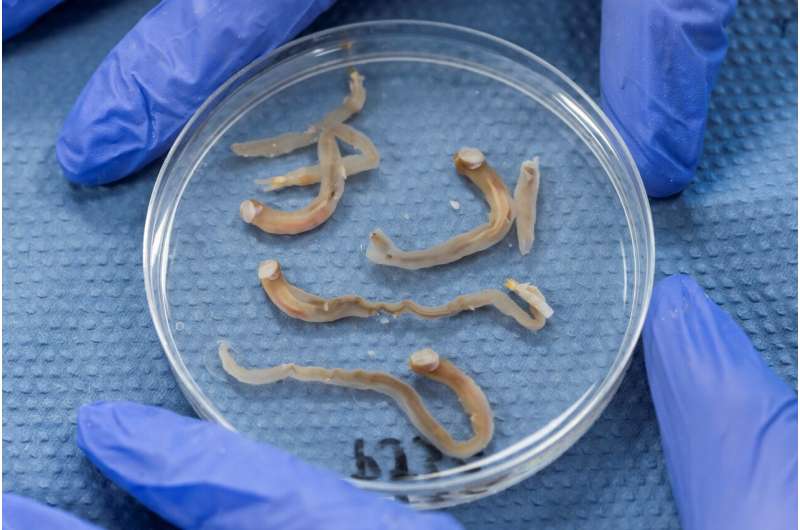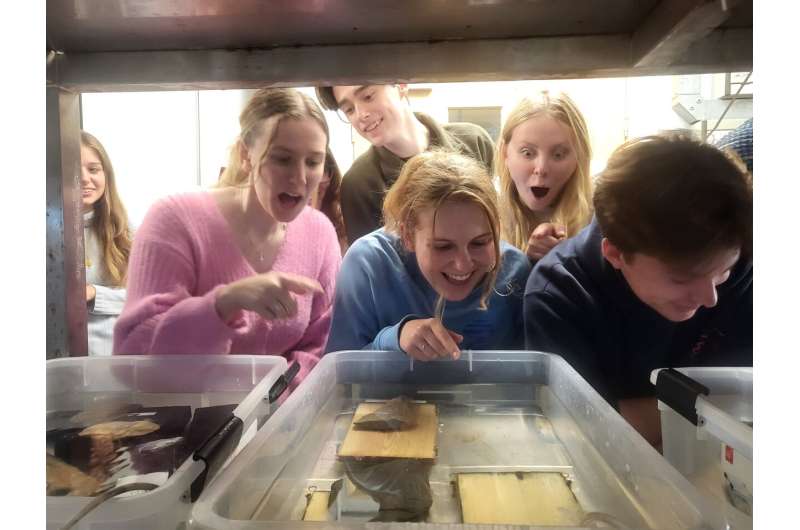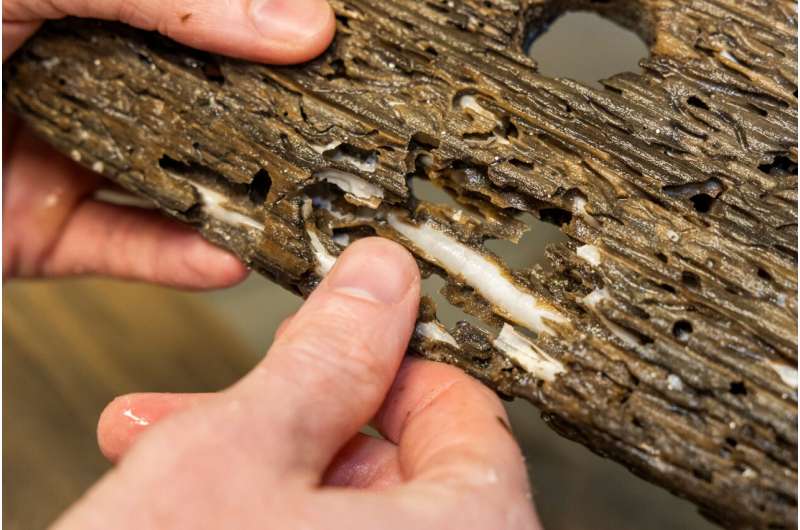This article has been reviewed according to Science X's editorial process and policies. Editors have highlighted the following attributes while ensuring the content's credibility:
fact-checked
trusted source
proofread
'Naked Clams': Aquaculture system hopes to turn marine pest into nutritious seafood

Researchers hoping to rebrand a marine pest as a nutritious food have developed the world's first system of farming shipworms, which they have renamed "Naked Clams." These long, white saltwater clams are the world's fastest-growing bivalve and can reach 30cm long in just six months. They do this by burrowing into waste wood and converting it into highly-nutritious protein.
The researchers found that the levels of Vitamin B12 in the Naked Clams were higher than in most other bivalves—and almost twice the amount found in blue mussels. The report is published in the journal Sustainable Agriculture.
And with the addition of an algae-based feed to the system, the Naked Clams can be fortified with omega-3 polyunsaturated fatty acids—nutrients essential for human health.
Shipworms have traditionally been viewed as a pest because they bore through any wood immersed in seawater, including ships, piers and docks.
The researchers developed a fully-enclosed aquaculture system that can be completely controlled, eliminating the water quality and food safety concerns often associated with mussel and oyster farming.
And the modular design means it can be used in urban settings, far from the sea.

"Naked Clams taste like oysters, they're highly nutritious and they can be produced with a really low impact on the environment," said Dr. David Willer, Henslow Research Fellow at the University of Cambridge's Department of Zoology and first author of the report.
He added, "Naked Clam aquaculture has never been attempted before. We're growing them using wood that would otherwise go to landfill or be recycled, to produce food that's high in protein and essential nutrients like Vitamin B12."
Scientifically named Teredinids, these creatures have no shell, but are classed as bivalve shellfish and related to oysters and mussels.
Because the Naked Clams don't put energy into growing shells, they grow much faster than mussels and oysters which can take two years to reach a harvestable size.
Wild shipworms are eaten in the Philippines—either raw, or battered and fried like calamari. But for British consumers, the researchers think Naked Clams will be more popular as a 'white meat' substitute in processed foods like fish fingers and fishcakes.

"We urgently need alternative food sources that provide the micronutrient-rich profile of meat and fish but without the environmental cost, and our system offers a sustainable solution," said Dr. Reuben Shipway at the University of Plymouth's School of Biological & Marine Sciences, senior author of the report.
He added, "Switching from eating beef burgers to Naked Clam nuggets may well become a fantastic way to reduce your carbon footprint."
The research is a collaboration between the Universities of Cambridge and Plymouth. The team is now trialing different types of waste wood and algal feed in their system to optimize the growth, taste and nutritional profile of the Naked Clams—and is working with Cambridge Enterprise to scale-up and commercialize the system.
More information: Willer, D.F. et al, Naked Clams to open a new sector in sustainable nutritious food production, Sustainable Agriculture, DOI: 10.1038/s44264-023-00004-y
Provided by University of Cambridge





















